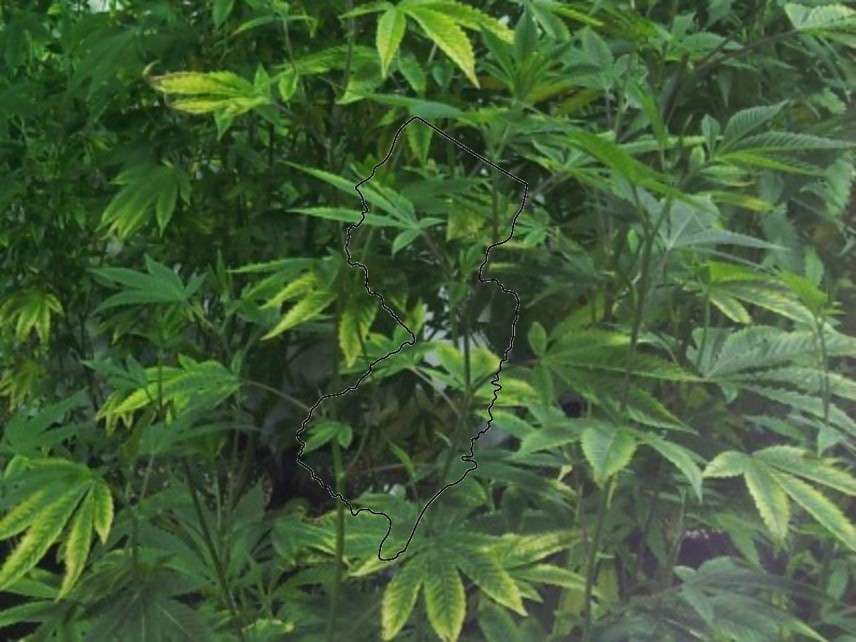Coupling Expungement With Marijuana Legalization in New Jersey Means the Cannabis Industry Can Do Well by Doing Good
Legislators in Trenton plan to address past pot convictions while preventing future ones.

A bill legalizing marijuana for recreational use won committee approval by wide margins in both houses of New Jersey's legislature this week. The bill, S2703 in the state Senate and A4497 in the state Assembly, would allow adults 21 or older to possess up to an ounce of marijuana, create a system to license and regulate commercial suppliers, and impose a special 12 percent sales tax on cannabis.
Unlike all but one of the 10 states that have legalized recreational use (Washington), the New Jersey bill would not allow home cultivation. New Jersey is also unusual in addressing the lingering collateral consequences of marijuana convictions at the same time that it legalizes the drug. So far California is the only state that has done that.
"A marijuana arrest in New Jersey can have a debilitating impact on a person's future, including consequences for one's job prospects, housing access, financial health, familial integrity, immigration status, and educational opportunities," the introduction to S2703 notes. To alleviate that problem, the bill would expedite record expungement for people convicted of marijuana offenses.
Under current law, marijuana offenders convicted of "disorderly persons" offenses (the equivalent of misdemeanors) generally can seek expungement five years "from the date of [the] most recent conviction, payment of fine, satisfactory completion of probation or release from incarceration…whichever is later." Up to four marijuana misdemeanors can be expunged, meaning "the arrest, conviction and any proceedings related thereto shall be deemed not to have occurred." Expunged records are not available to the general public, but they can still be viewed by law enforcement agencies for certain purposes.
For people convicted of "indictable offenses" (felonies) involving 25 grams (about nine-tenths of an ounce) or less of marijuana, the usual waiting period is 10 years. Indictable offenses involving larger quantities of marijuana or any quantity of other prohibited drugs cannot be expunged.
S2703 would allow people convicted of marijuana offenses involving one ounce or less to seek expungement "at any time" without paying the usual fees. In such cases, the bill says, the court "shall immediately grant an expedited expungement." A companion bill (starting on page 215 of this file) would go further, allowing expungement of low-level felonies involving drugs other than marijuana.
In addition to addressing longstanding injustices, the expungement provisions make marijuana legalization more appealing to legislators who represent predominantly black districts where a disproportionate number of residents have criminal records. "If expungement wasn't a part of this, legalization wouldn't happen," Assemblyman Jamel Holley (D-Elizabeth), a sponsor of the broader expungement proposal, told The New York Times. "They wouldn't have the votes for it. We represent minority communities and communities who have been impacted the most. This is very important to us. There would be no way that I would support legalization of marijuana without expungement."
Gov. Phil Murphy, a Democrat who ran on a promise to pursue marijuana legalization, has emphasized the racially disproportionate impact of pot prohibition. Anti-pot activist Kevin Sabet sees such talk as a cover for capitalism. "I think it's pretty clear that this bill is not about social justice—it's about money for this industry," Sabet told the Times. "Expungement has been a complete afterthought and something to appease certain groups to get their support for the larger legalization bill." Another way of putting it: Cannabis entrepreneurs can do well by doing good.


Show Comments (15)